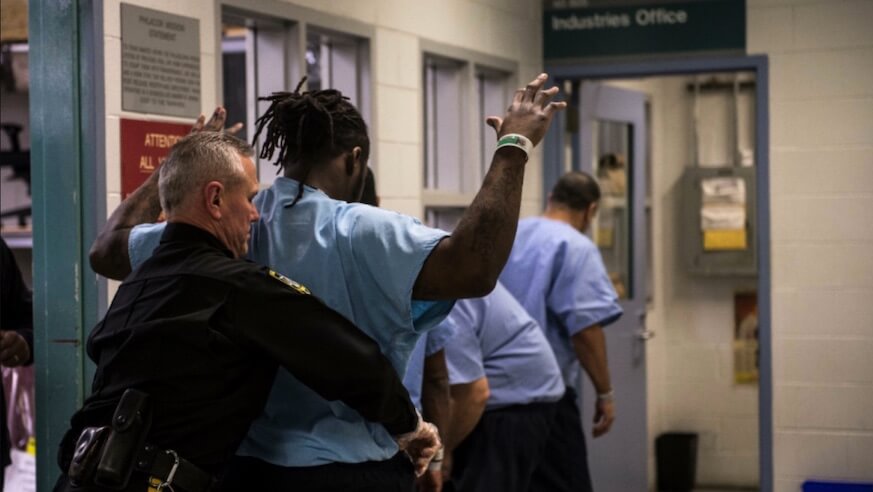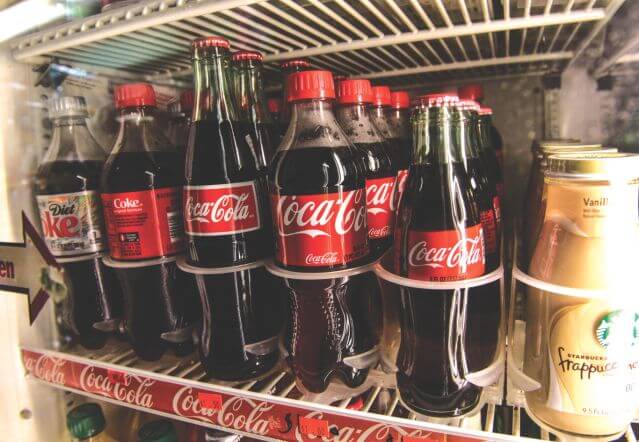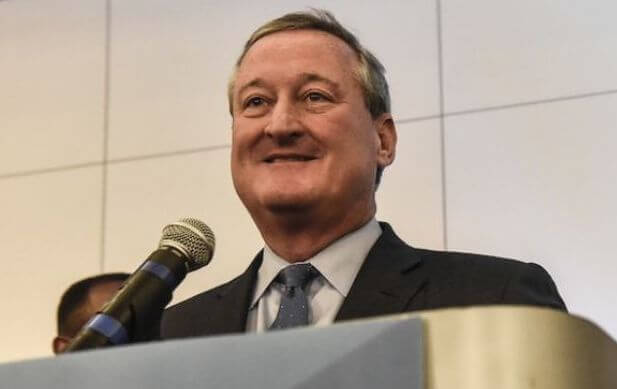Mayor Jim Kenney’s proposed budget includes reductions in inmate fees, and a new city-issued report indicates his administration could be looking at additional steps to alleviate the financial burden on incarcerated people and their families.
Kenney’s spending plan would eliminate a $1 surcharge for items purchased at the jail commissary and allow prisoners 15 minutes of free phone time a day, up from 10.
In addition, the administration wants to allocate nearly $2.2 million to provide up to one hour of free teleconference visits a week for inmates.
A report released by the city’s Office of Community Empowerment and Opportunity (CEO) suggests that Kenney’s office is considering eliminating all phone fees over the next year.
The document notes that such costs hinder close communication between inmates and their loved ones, which long-standing research shows leads to lower rates of recidivism, as well as better opportunities upon release.
Phone calls and video conferences have become particularly important during the coronavirus pandemic.
While the state prison system has begun gradually resuming in-person visits, there is not yet a timeline for face-to-face reunions at the city’s State Road jail complex.
Inmates in the Philadelphia Department of Prisons are currently charged an average of 17 cents a minute after 10 free minutes.
Nearly all prisoners are dependent on someone outside the walls for phone and commissary money, and the financial load is often carried by Black women, according to the CEO report.
CEO surveyed 192 people who are or were formerly incarcerated, and 84% reported that there were times when they could not afford to call family members and friends.
About three out of four said they spent at least $50 a week in jail, even though their immediate family’s household income was, on average, less than $300 a week, the report said.
More than 90% of respondents said they struggled to purchase products at the commissary, which usually offers food, hygiene, household and stationary items.
“Research shows that communities are safer, and crime is reduced if returning citizens have the support of their families to help them get back on track with jobs, housing and education,” said Mitchell Little, CEO’s executive director, in a statement announcing the report.
Efforts to reduce or remove fines and fees for prisoners are part of a broader effort to make the criminal justice system more equitable for low-income and minority populations.
District Attorney Larry Krasner, who all but secured a second term after winning Tuesday’s Democratic primary, has promised to advocate for the elimination of cash bail.
That change was also supported last week by a group of progressive city councilmembers and state lawmakers, who called for an end to “the criminalization of poverty.”
Aside from bail, 45% of those who answered the CEO survey reported owing more than $3,000 in court-related costs. Not paying could lead to late charges or an arrest warrant.
Deana Gamble, a Kenney spokesperson, said Sunday that “reducing fines and fees that disproportionately burden Black Philadelphians is a priority for the mayor.”
His budget proposal would shift $3 million to the jail system to replace lost revenue from the commissary markup and other fees. The measure, along with his entire spending plan, is currently being considered by Council.



























